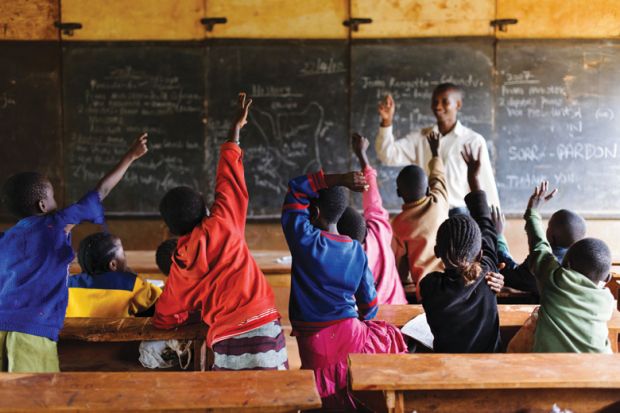A British university has joined forces with Kenyan partners on a project designed to help more children progress through school and into higher levels of education.
David Stephens, professor of international education at the University of Brighton, has worked in education in the developing world for 35 years, including a number of projects with the Aga Khan Foundation focusing on the specific needs of girls.
When he saw they were looking for academics to research the role of teacher mentoring in Kenya, he and his colleague Andrew Hobson, head of Brighton’s Education Research Centre, put in a bid for funding. They have now forged links with Kenya’s Kenyatta and Moi universities.
“Strengthening education systems in East Africa: mentoring for development in pre-primary and primary education” (SEMESA) has already launched a pilot scheme to train and put into the classroom 12 more experienced mentors for 48 younger teachers working in schools in the Wareng and Ruiru districts. The majority of both mentors and teachers are women.
Although the most direct beneficiaries will be the individual teachers and their pupils, many others also could gain from the project. As part of what Professor Stephens calls a research and development project, data will be collected on both the mentoring process itself, and whether it leads to improvements in the assessments that take place in Kenya at the end of primary school. Schools without mentoring schemes will be used as a basis for comparison.
“We will be looking at that form of mentoring,” explained Professor Stephens, “and asking: does it work? Is it a possible model for improving teaching?”
Should the results prove positive, a number of institutions stand to gain. The participating Kenyan universities will get a chance to build their research capacity and develop their initial teacher education programmes. The Kenyan Ministry of Education and external donors will learn lessons for policymaking in the field of teacher education. Finally, the wider research community will acquire a detailed body of evidence for the development of teacher mentorship theory.
Although SEMESA comes to an end next year, Professor Stephens already hopes to use it as an impact case study in the next round of the research excellence framework.
He is already working on a separate project in the Maasai Mara area of Tanzania. If all goes well, he will approach the Aga Khan Foundation for further funding to roll out the Kenya initiative across anglophone East Africa.
Register to continue
Why register?
- Registration is free and only takes a moment
- Once registered, you can read 3 articles a month
- Sign up for our newsletter
Subscribe
Or subscribe for unlimited access to:
- Unlimited access to news, views, insights & reviews
- Digital editions
- Digital access to THE’s university and college rankings analysis
Already registered or a current subscriber? Login




